Post-Doc in Crystallography and programming (two year Post Doc
advertisement
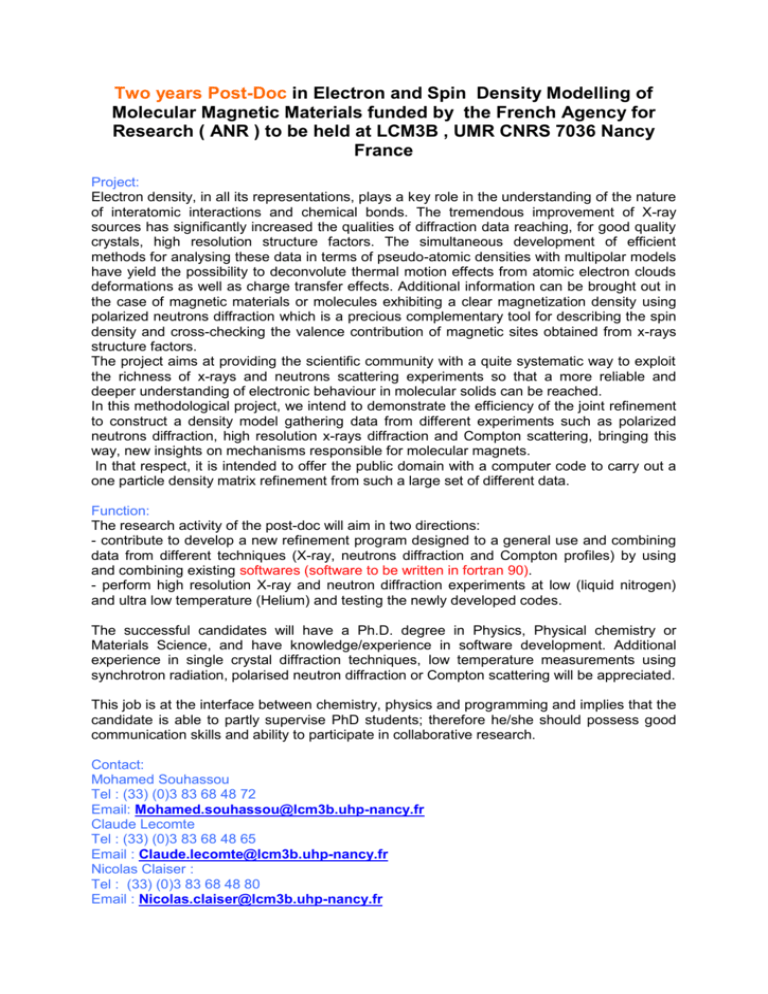
Two years Post-Doc in Electron and Spin Density Modelling of Molecular Magnetic Materials funded by the French Agency for Research ( ANR ) to be held at LCM3B , UMR CNRS 7036 Nancy France Project: Electron density, in all its representations, plays a key role in the understanding of the nature of interatomic interactions and chemical bonds. The tremendous improvement of X-ray sources has significantly increased the qualities of diffraction data reaching, for good quality crystals, high resolution structure factors. The simultaneous development of efficient methods for analysing these data in terms of pseudo-atomic densities with multipolar models have yield the possibility to deconvolute thermal motion effects from atomic electron clouds deformations as well as charge transfer effects. Additional information can be brought out in the case of magnetic materials or molecules exhibiting a clear magnetization density using polarized neutrons diffraction which is a precious complementary tool for describing the spin density and cross-checking the valence contribution of magnetic sites obtained from x-rays structure factors. The project aims at providing the scientific community with a quite systematic way to exploit the richness of x-rays and neutrons scattering experiments so that a more reliable and deeper understanding of electronic behaviour in molecular solids can be reached. In this methodological project, we intend to demonstrate the efficiency of the joint refinement to construct a density model gathering data from different experiments such as polarized neutrons diffraction, high resolution x-rays diffraction and Compton scattering, bringing this way, new insights on mechanisms responsible for molecular magnets. In that respect, it is intended to offer the public domain with a computer code to carry out a one particle density matrix refinement from such a large set of different data. Function: The research activity of the post-doc will aim in two directions: - contribute to develop a new refinement program designed to a general use and combining data from different techniques (X-ray, neutrons diffraction and Compton profiles) by using and combining existing softwares (software to be written in fortran 90). - perform high resolution X-ray and neutron diffraction experiments at low (liquid nitrogen) and ultra low temperature (Helium) and testing the newly developed codes. The successful candidates will have a Ph.D. degree in Physics, Physical chemistry or Materials Science, and have knowledge/experience in software development. Additional experience in single crystal diffraction techniques, low temperature measurements using synchrotron radiation, polarised neutron diffraction or Compton scattering will be appreciated. This job is at the interface between chemistry, physics and programming and implies that the candidate is able to partly supervise PhD students; therefore he/she should possess good communication skills and ability to participate in collaborative research. Contact: Mohamed Souhassou Tel : (33) (0)3 83 68 48 72 Email: Mohamed.souhassou@lcm3b.uhp-nancy.fr Claude Lecomte Tel : (33) (0)3 83 68 48 65 Email : Claude.lecomte@lcm3b.uhp-nancy.fr Nicolas Claiser : Tel : (33) (0)3 83 68 48 80 Email : Nicolas.claiser@lcm3b.uhp-nancy.fr
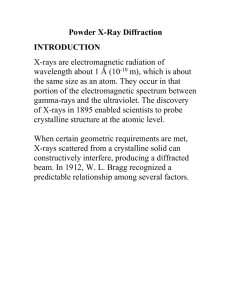
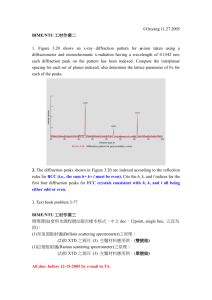
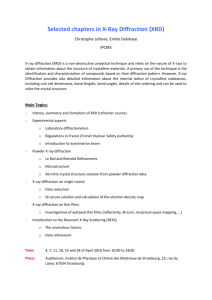
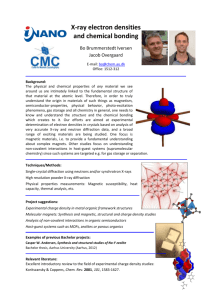
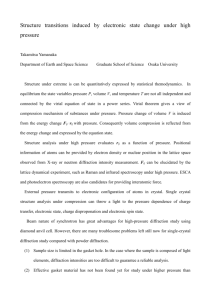

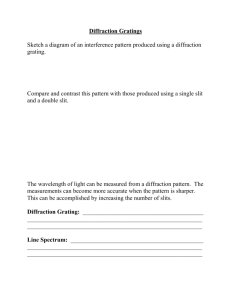
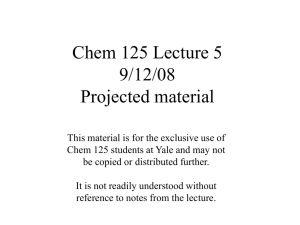
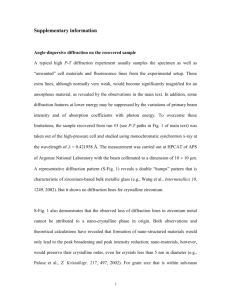
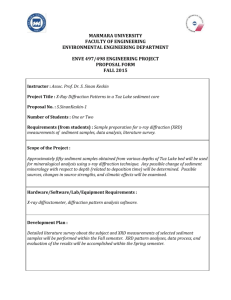
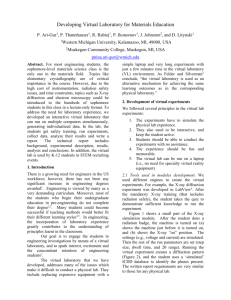
![科目名 Course Title Diffraction Physics [回折結晶学E] 講義題目](http://s3.studylib.net/store/data/006817578_1-3899350cc898a3a81af468e243522534-300x300.png)